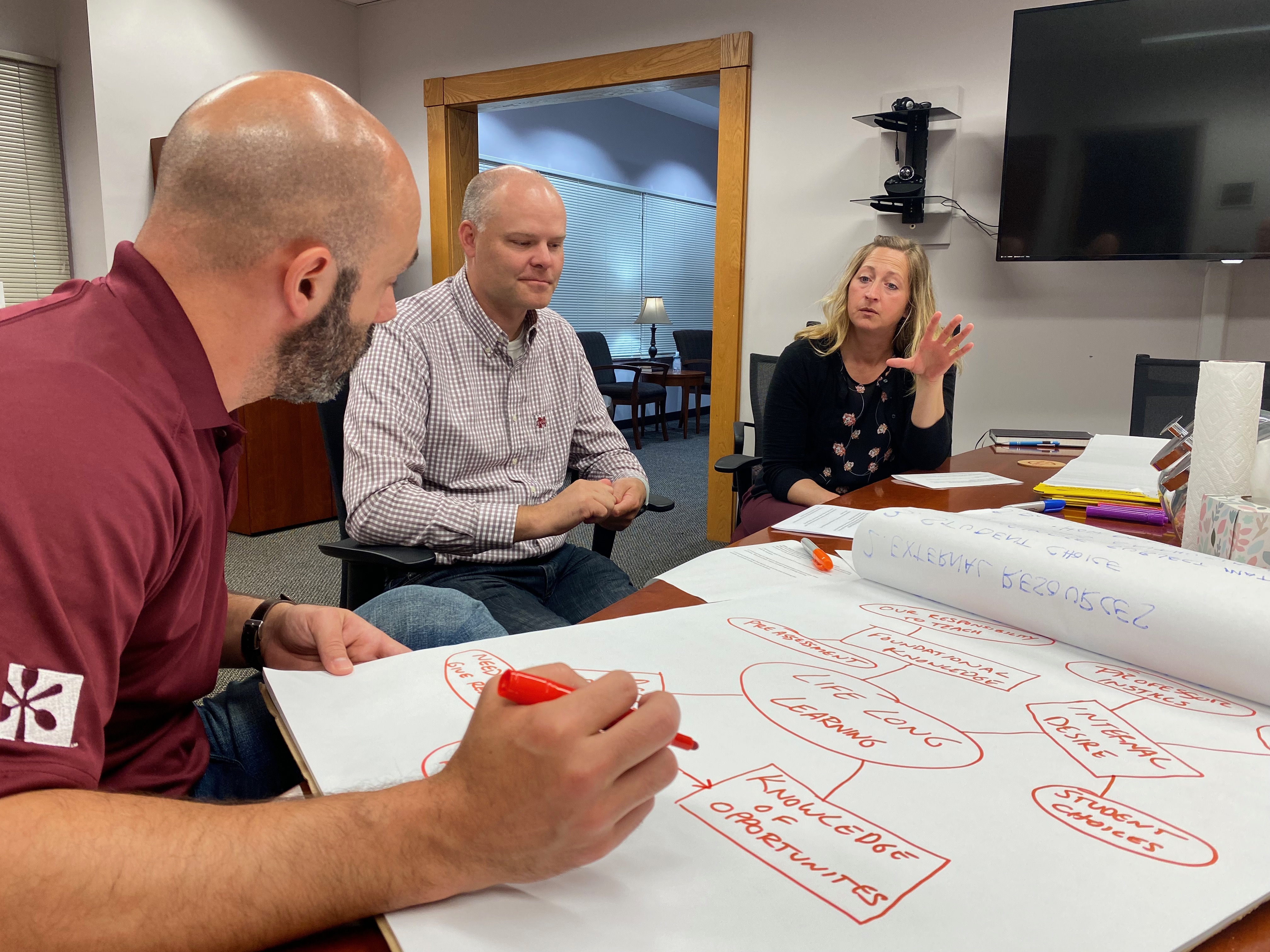Creating Life-long Learners

This month’s Friday Teacher Forum addressed an appropriate topic for this time of the semester: How to encourage our students to be life-long learners. The end of the semester is often the time when students and faculty have the least enthusiasm for continuing to learn as long-term learning takes effort and quality learning habits. It’s not difficult to see why so many studies show a learning loss over the summer. So how can faculty promote a healthier approach to learning and continued and effective interest by students?
In the Friday Forum, we discussed more general ways of designing courses to encourage students to become independent learners and also specific, practical ways that faculty can promote continued inquiry, especially through the summer. First, there was a general consensus that courses need to be designed to provide students with the tools that they need to be able to investigate topics on their own. Students need to be able to find and use resources to do independent inquiry. Additionally, participants mentioned the importance of providing some choice in assignments in order to foster motivation and also the necessity of providing constructive and encouraging feedback to leave students with a positive attitude toward the topic. Further suggestions included ensuring the relevance of material presented, addressing contemporary issues where possible and modeling lifelong learning by having the teacher explain the areas where they continue to make inquiry.
In terms of specific, practical tips for the end of the semester, participants mentioned several actionable ways to provide students with resources and information to continue their learning into the summer and beyond. Providing students with a supplementary reading list, directory of web resources or even associations to join or current events to continue following were mentioned. Additionally, some participants mentioned promoting additional follow-up coursework to students or conferences related to the topic that could be attended virtually or in-person. Finally, some participants identified the importance of having students interact with professionals who are using what they’ve learned and also continuing the process of learning after graduation.
There were, in the end, a surprising number of ideas to promote life-long learning and faculty who had already given this considerable thought and already made some effort to address the issue in their courses. There was also a general consensus on the necessity of making learning as enjoyable as possible and helping students to create healthy learning habits that would serve them through school and into the future.
Do you have other ideas on the topic? We’d love to hear them. You can provide input HERE on our monthly prompt.